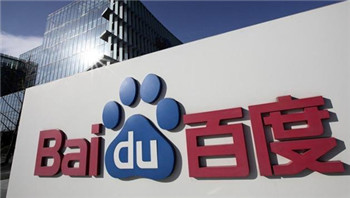(单词翻译:单击)

Baidu has moved to restore investor confidence with a $1bn share buyback, after $12bn was wiped off the Chinese search engine’s stock market capitalisation in the wake of disappointing quarterly earnings.
百度(Baidu)发布了令人失望的季度财报之后,股票市值蒸发120亿美元,随后这家中国搜索引擎启动了10亿美元的股票回购以恢复投资者信心。
The buyback will be funded with existing cash and will take place over 12 months, Baidu said yesterday, after its shares fell 14 per cent over the week. Baidu narrowly missed analysts’ estimates for second-quarter profits and guidance for third-quarter revenues
百度昨日表示,将在接下来的12个月内动用现有资金进行此次回购。此前,百度股价在一周内下跌了14%。百度第二季度利润和第三季度营收指引都略低于分析师的估计。
The company said that the move “demonstrates Baidu’s confidence in the O2O [online-to-offline] opportunity and in our ability to capture it. It’s our commitment with nine zeros”.
该公司表示,此举“证明百度对O2O(线上到线下)商机,以及我们捕捉该机会的能力有信心。于是我们作出10亿美元回购的承诺。”
Reporting results on Monday, Baidu forecast revenue growth for the current quarter at 34-37 per cent.
百度在周一发布营收结果,预测当前季度营收同比增长应在34%到37%之间。
“Last year, they had a full year of 50 or near 50 per cent year-on-year revenue growth, and now they’ve had two quarters sub-40 per cent and another quarter of guidance suggesting mid-30s. So basically the message is that for search, the party is over,” said Mark Natkin of Marbridge Consulting in Beijing.
北京Marbridge Consulting公司的马克纳特金(Mark Natkins)表示:“去年,他们全年营收同比增长50%,或接近50%,而现在他们已经有两个季度的增长低于40%,并且第三季度营收指引在35%左右。所以从中基本可以看出,搜索行业的狂欢结束了。”
Analysts worry that the slowdown raises doubts about Baidu’s ability to manage the transition from an internet ruled by PC users to one dominated by smartphones, where users pick from a screen full of apps instead of finding content through search engines.
分析师担心百度营收增长放缓会引起人们怀疑,认为百度无法从个人电脑占主导的互联网顺利过渡到智能手机占主导的互联网。在智能手机互联网时代,用户是在满屏幕的应用(app)里进行选择,而不是通过搜索引擎寻找内容。
Robin Li, Baidu’s chairman, announced in June a Rmb20bn ($3.2bn) investment over three years in Baidu Nuomi, its Groupon-like marketplace, to lift its performance in mobile.
百度董事长李彦宏(Robin Li)6月份宣布,未来三年将向百度糯米(Baidu Nuomi)投资200亿元人民币(约合32亿美元),以提升百度在移动端的业绩。百度糯米是百度旗下类似Groupon的团购网站。
Nuomi is envisioned as a focal point for services such as movie ticket sales and taxi hailing where physical and virtual commerce are combined in what is known as “online-to-offline” business funnelling users to online payments systems.
百度糯米的设想是成为电影票销售以及打车等服务的中心,将实体和虚拟商务结合成所谓的“O2O”业务,引导用户使用在线支付系统。
Analysts have expressed concern that Baidu is losing focus, citing as an example Baidu wallet, the online payment system founded in April 2014 and the weakest of China’s major online payment services.
分析师担心百度正失去关注,他们引用了百度钱包(Baidu Wallet)的例子。百度钱包成立于2014年4月,是百度旗下在线支付系统,在中国主要同类系统中的竞争力最低。
In data released for the third quarter of 2014 by Analysys, a Beijing-based consultancy, Baidu Wallet, its mobile payments service, was found to have 0.06 per cent of the market. This compared to 79 per cent for Ant Financial’s Alipay, the country’s most popular mobile payments service which is owned by rival Alibaba.
北京一家咨询公司易观国际(Analysys)2014年第三季度发布数据显示,作为百度旗下的移动支付服务产品,百度钱包的市场份额为0.06%,而蚂蚁金服(Ant Financial)的支付宝(Alipay)的市场份额为79%。支付宝是中国最普及的移动支付服务,其持有者为百度竞争对手阿里巴巴(Alibaba)。
The companies published more recent figures which suggest the gap has closed slightly. Baidu said it had 35m active users for Baidu Wallet at the end of June, while Alipay said it had 400m.
根据易观国际发表的最新数据显示,百度钱包与支付宝之间的差距已有小幅缩短。百度表示至6月底,百度钱包的活跃用户达到3500万名,支付宝则表示同期其活跃用户为4亿名。
“People are concerned that Baidu is not going to be able to move to online-to-offline because their payment system is a lot weaker than Tencent and Alibaba,” said Shaun Rein of China Market Research Group in Shanghai.Investments in things like movie tickets and other “online-to-offline” businesses are “something they haven’t proved they are good at,” he added.
上海咨询公司中国市场研究集团(China Market Research Group)的雷小山(Shaun Rein)表示:“人们担心的是,百度无法向O2O转型,因为他们的支付系统比腾讯(Tencent)和阿里巴巴弱太多。”他还说,百度在电影票以及其他“O2O”业务上的投资,“还无法证明他们擅长于此”。
“They’re getting hammered because they’re making the investment they need to potentially thrive in the next five to 10 years. The concern is, are they making the right investments, and are they going to be good at those new businesses?”
“他们遭到了声讨,因为他们需要这一投资在未来5年到10年内都保持蓬勃发展的潜力。值得关注的是,他们是否做出了正确的投资?还有他们是否能做好这些新业务?”


